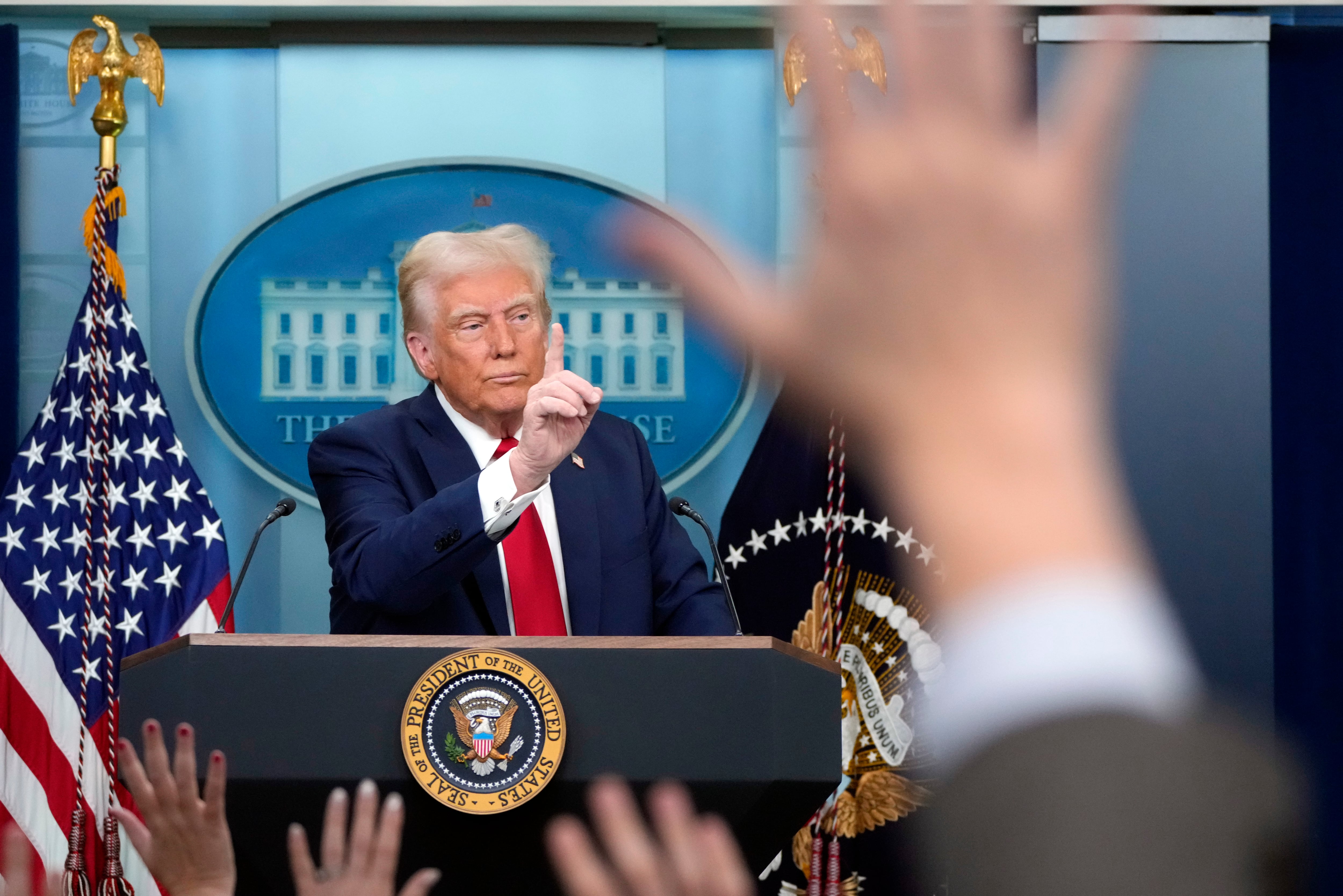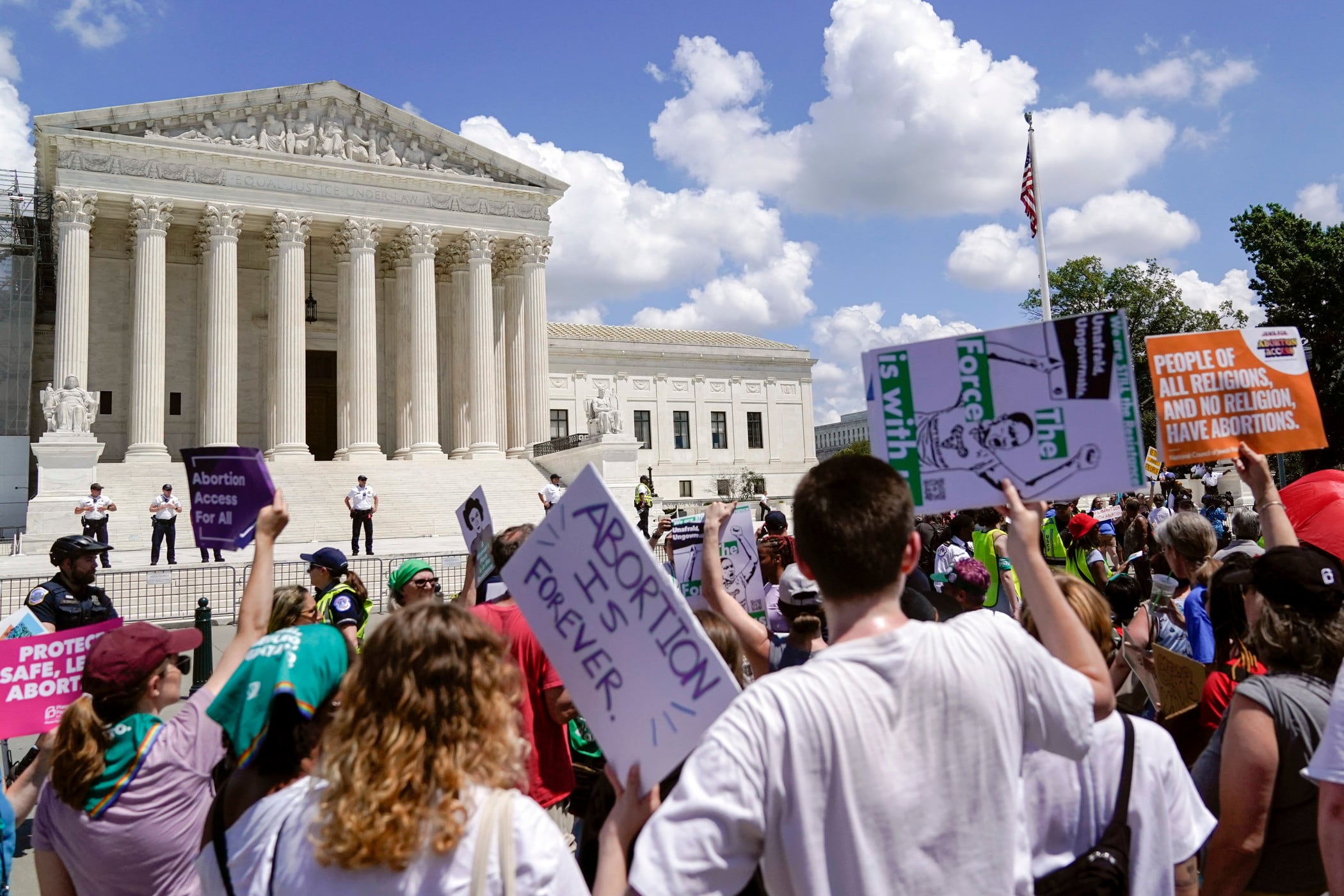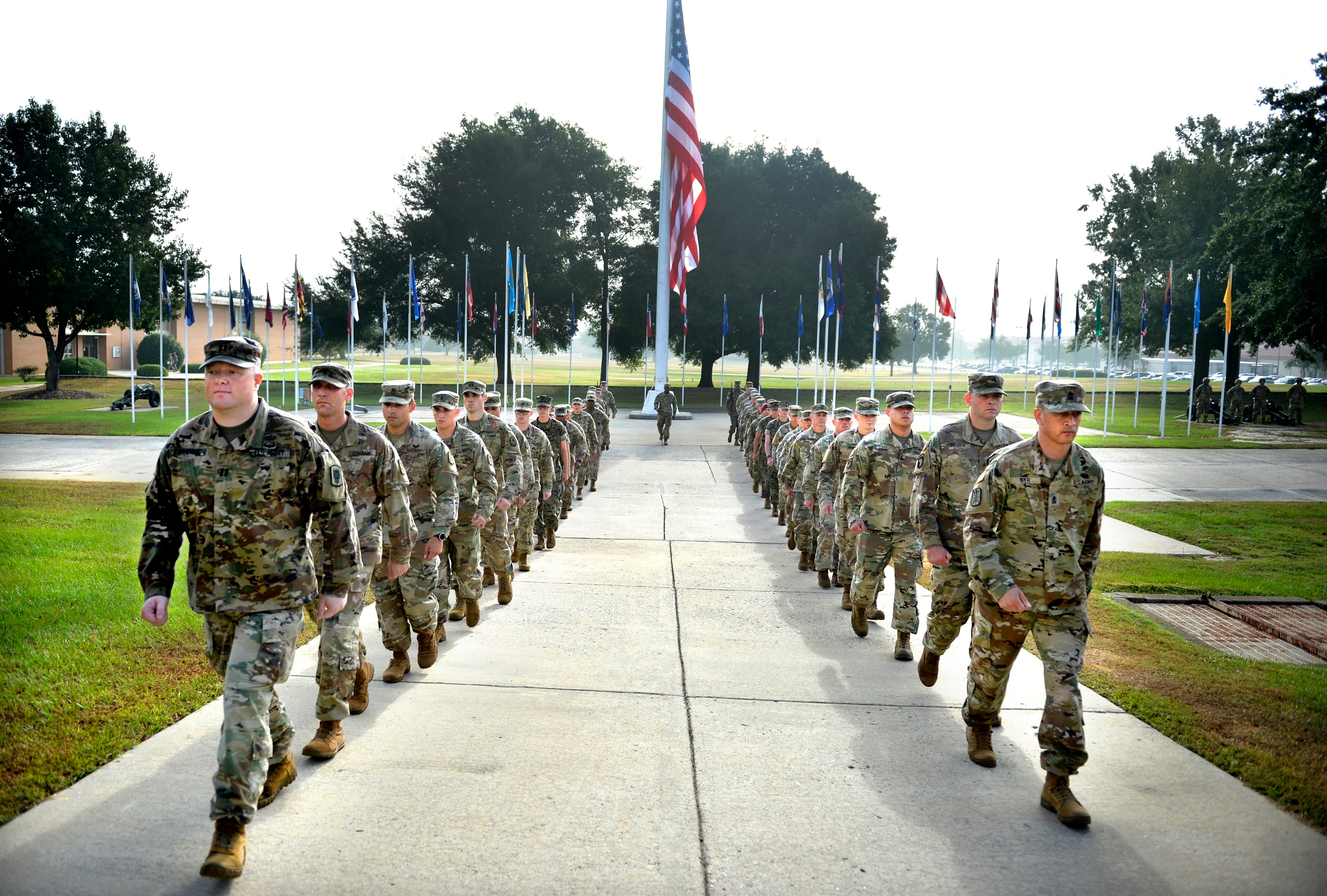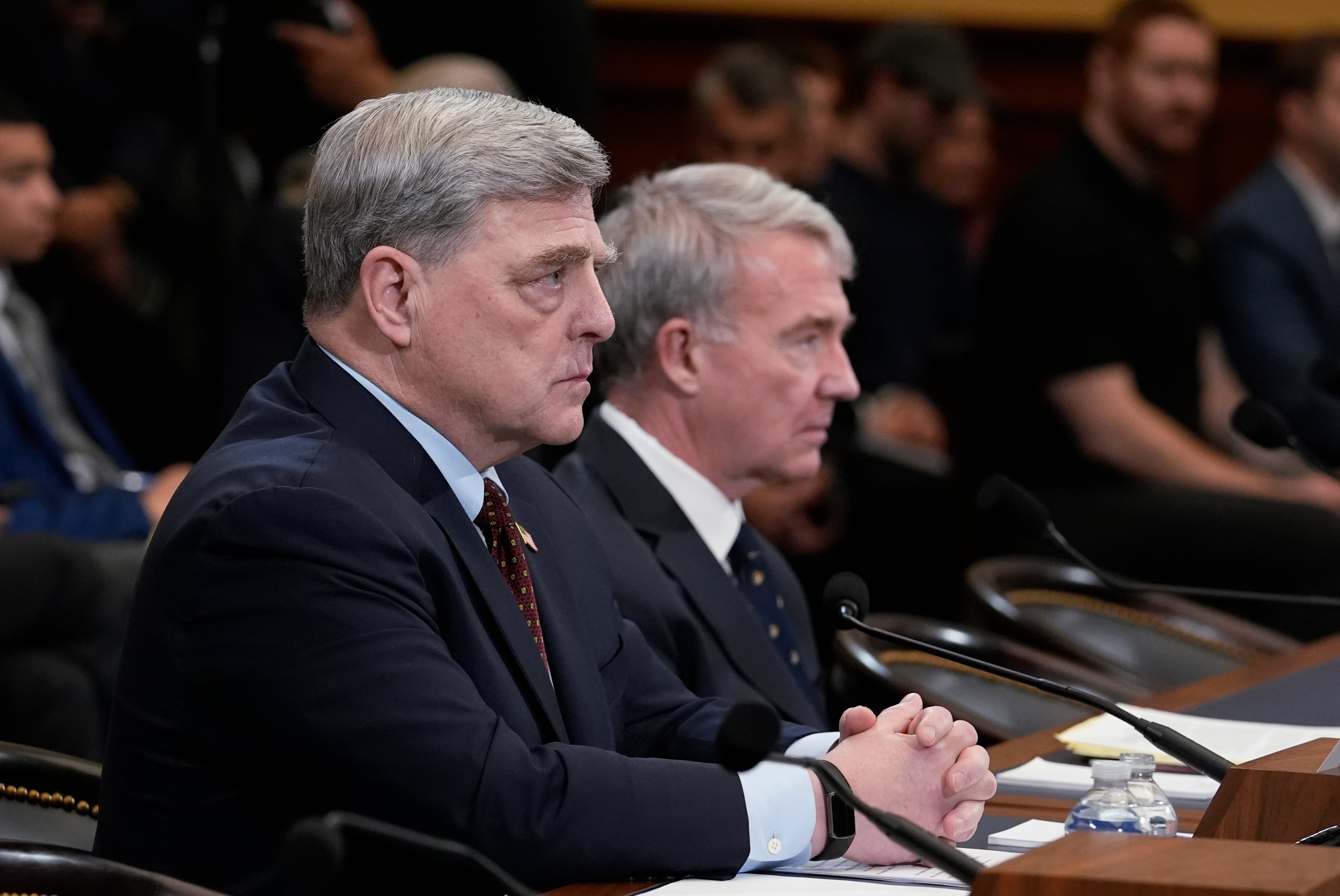Governors around the country began ramping up security at their state capitols, including activating their states’ National Guards, in preparation for what the FBI identified as massive armed protests planned in every state capital in the country leading up to Inauguration Day.
The activations come in the wake of the deadly Jan. 6 insurrection by pro-Trump supporters at the Capitol in Washington, D.C., and ahead of the Jan. 20 inauguration of President-elect Joe Biden. They are in addition to National Guard forces mobilized to D.C., where there are already about 6,200 National Guard soldiers and airmen from six states and the District of Columbia on the ground supporting civilian authorities, said Army Gen. Daniel Hokanson, Chief of the National Guard Bureau.
“We have received support requests from the Secret Service, Capitol Police, and Park Police, and have been authorized to provide up to 15,000 Guard members to meet current and future inauguration support requirements,” Hokanson said in a media release.
In Washington state, Gov. Jay Inslee on Tuesday night said the Washington National Guard would continue to support security efforts at the Capitol at least through Inauguration Day “due to evolving intelligence on security threats” posed in all 50 state Capitols.
Washington state’s Legislature convened Monday amid a heightened security presence due to concerns about armed groups who might try to disrupt the proceedings. At least two people were arrested. A right-wing militia had encouraged its members to occupy the Capitol before calling it off.
RELATED
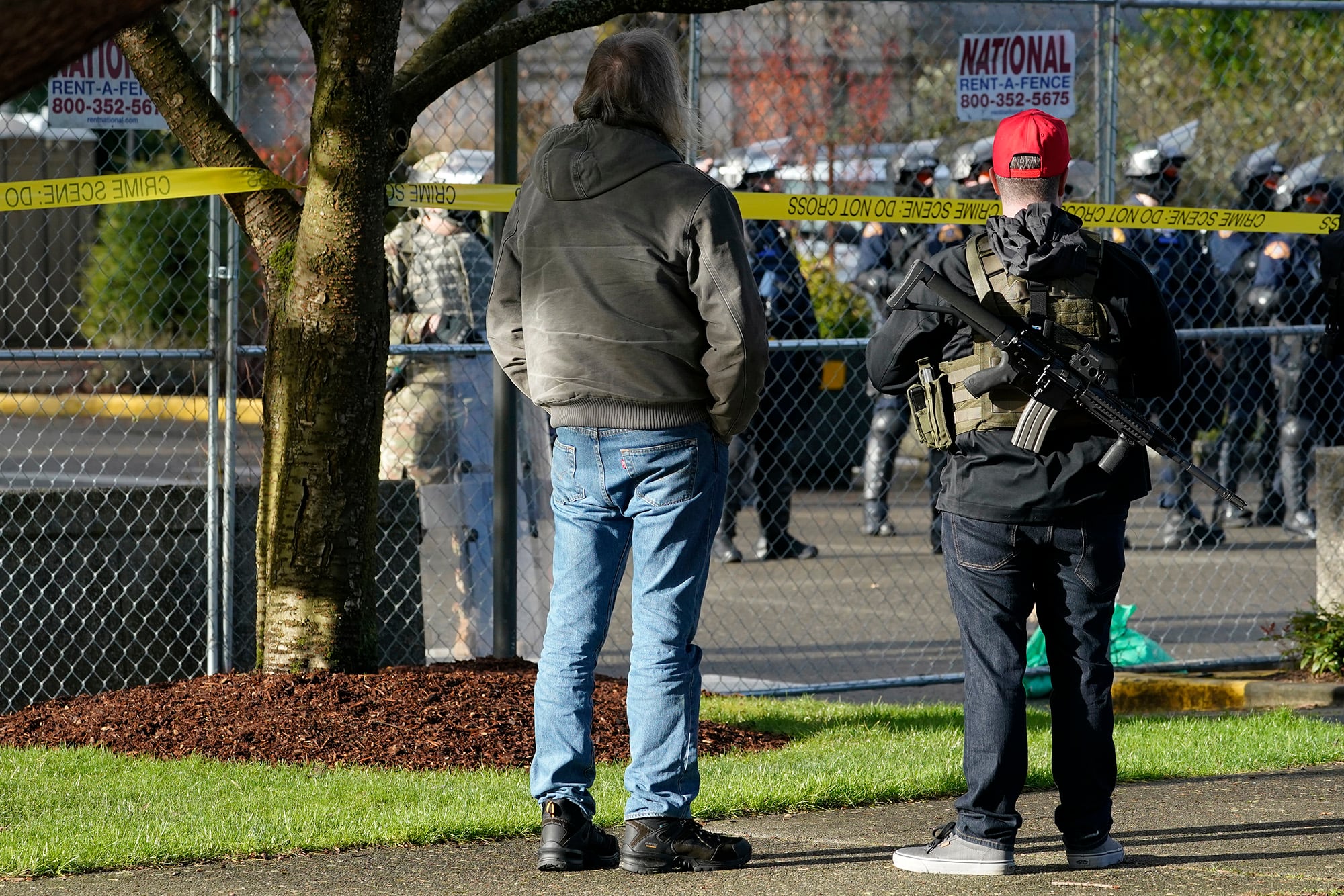
Capitol campus buildings are closed to the public because of the coronavirus pandemic.
“These unfortunate, necessary security precautions could last longer, but we are hopeful that we will soon see political temperatures cool and threat levels come down, bringing a related easing of these restrictions,” Inslee said in an emailed statement.
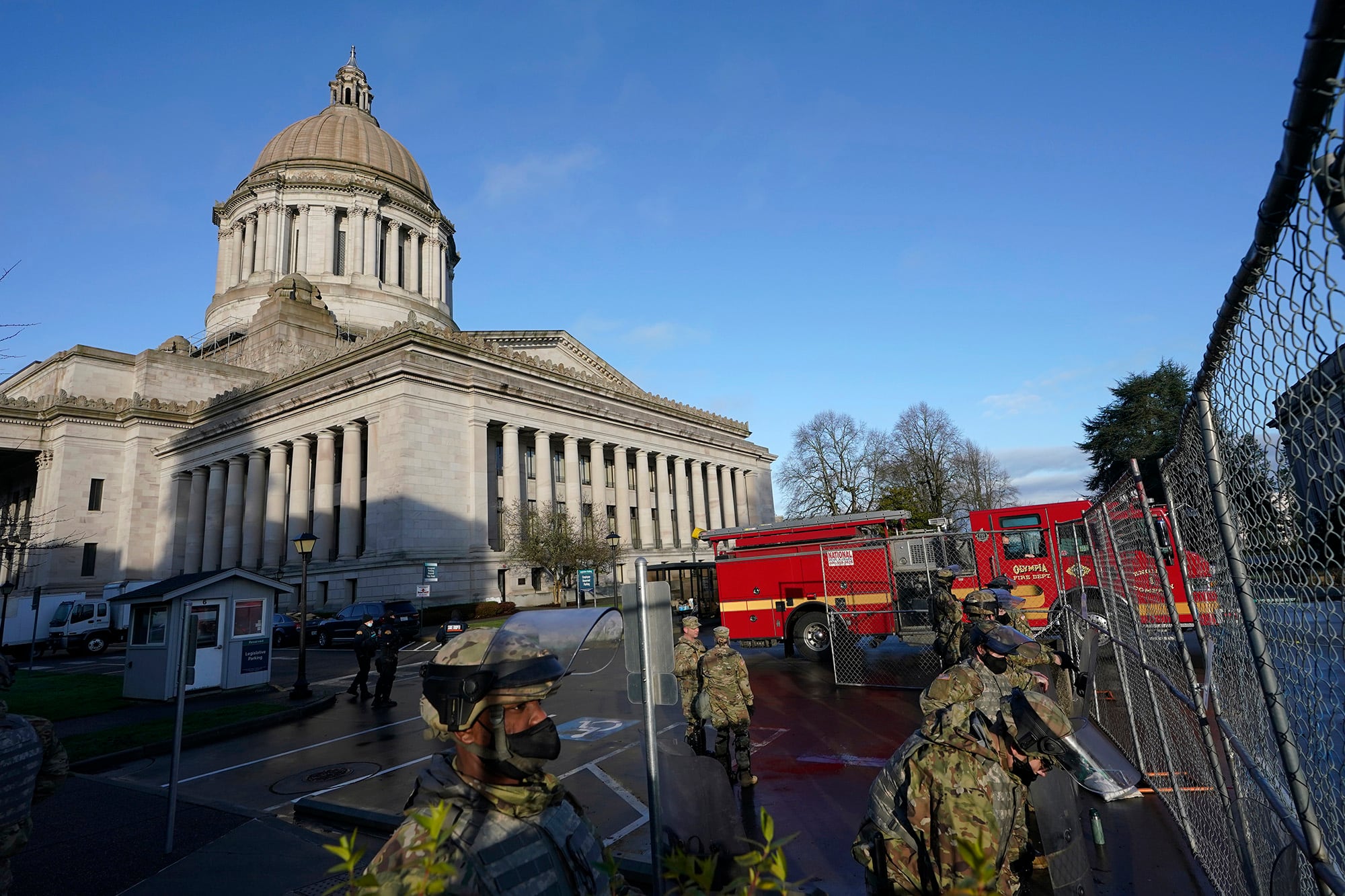
Last Wednesday, people broke a gate outside the governor’s mansion and made it to the porch and front yard. That breach came hours after the pro-Trump siege of the nation’s Capitol building in Washington, D.C., that resulted in the deaths of five people, including Air Force veteran Brian Sicknick, a Capitol Police officer who was hit in the head with a fire extinguisher and Ashli Babbitt, an Air Force veteran and rioter who was shot and killed by Capitol police during the siege.
Inslee said many roads and trails also will continue to be closed so people can peacefully assemble in non-restricted areas without the concern of vehicles impacting their activity while also allowing for emergency vehicle access.
“Law enforcement remains present to help ensure that all sides have the opportunity to legally exercise their free speech rights and peaceably assemble in non-restricted areas,” he said.
Ohio
Ohio Gov. Mike DeWine activated 580 National Guard members Tuesday in preparation for what the FBI identified as massive armed protests planned in Columbus and every state capital in the country leading up to Inauguration Day.
“People have the right to protest. They do not have the right to be destructive,” DeWine said during a briefing Tuesday. “They do not have the right to hurt other people.”
“We all saw what happened at the U.S. Capitol. And we know we are very concerned,” he added.
RELATED
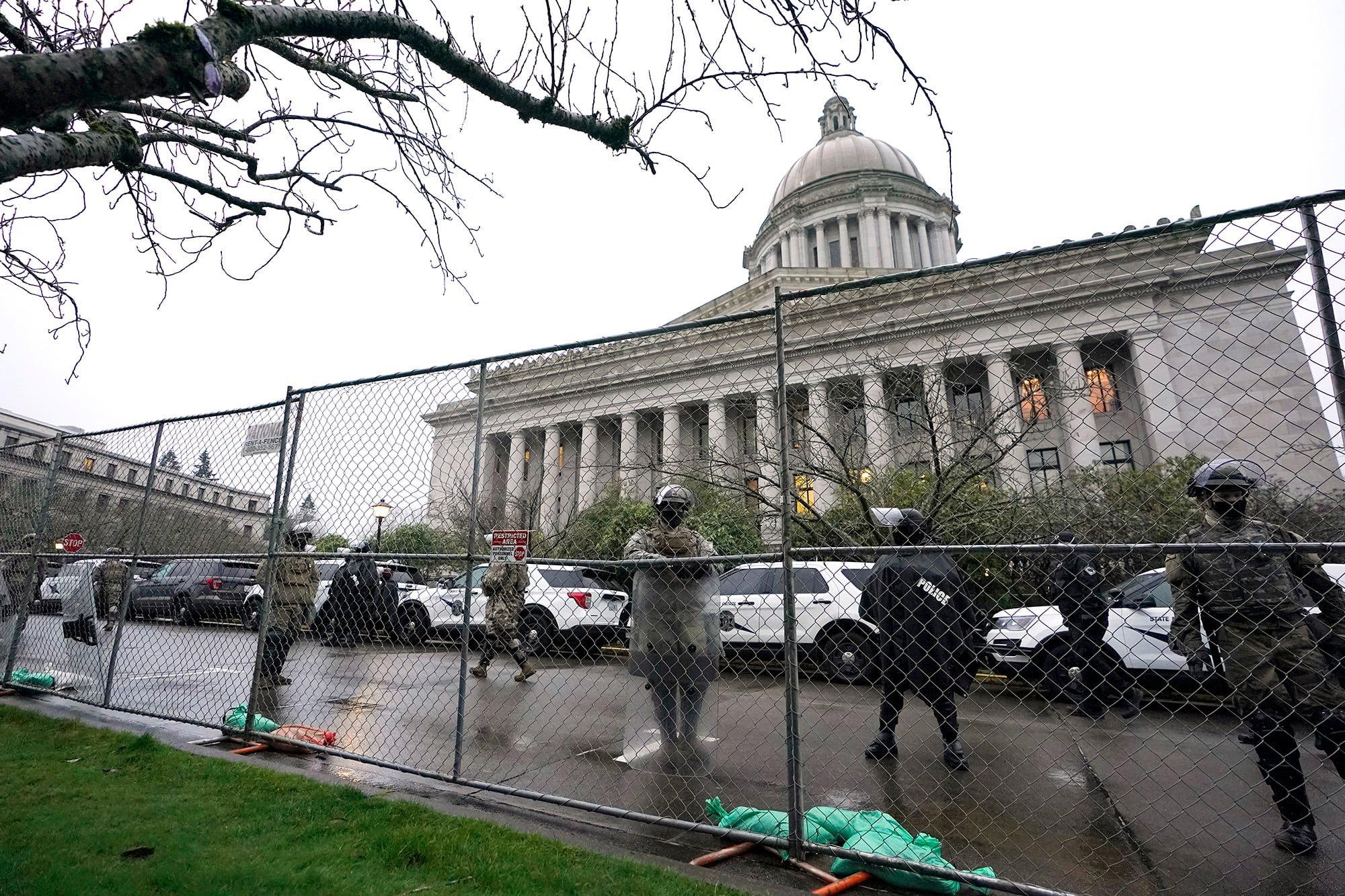
The Republican governor authorized National Guard members from Jan. 14 to Jan. 21 to conduct training and be prepared in case called upon to police the armed riots authorities say are planned at the U.S. Capitol and the Ohio Statehouse. Two hundred additional National Guardsmen will be sent to Washington, D.C.
DeWine said he will adjust the number of Guardsmen activated and deploy them to specific areas in Ohio depending on the requests from city mayors and the intelligence the state receives.
“We know there are people in this county who want to do more than demonstrate and more than exercise their First Amendment rights,” DeWine said. “The more information we are seeing as to who some of these people were and how well prepared they were, it’s something every American should be concerned with.”
Minnesota
Gov. Tim Walz said Tuesday he plans to deploy the Minnesota National Guard to protect against potential threats to the state Capitol ahead of Biden’s inauguration.
Walz told reporters he plans to issue the executive order activating the National Guard late Tuesday or on Wednesday, but that troops will be activated for several days.
The Minnesota National Guard said in a separate announcement that it would deploy a company of more than 130 solders to Washington in support of security for the inaugural. Col. Scott Rohweder, the Guard’s operations director, said the Guard has sent members to previous inaugurations, too.
Oregon
Gov. Kate Brown has activated the Oregon National Guard because of possible violence at the state Capitol and elsewhere following the violent storming of the U.S. Capitol last week by a pro-Trump mob.
The Oregon State Police said in a statement Wednesday the guard would be used as necessary and their deployment locations wouldn’t be made public. The Oregon Legislature convenes Tuesday.
“The recent events at our Nation’s Capitol building and at our own statehouse illustrate the need for law enforcement to be prepared and appropriately staffed for any large gatherings,” said Oregon State Police Superintendent Terri Davie, who requested that the National Guard be activated to assist authorities.
The Capitol in Salem, Oregon, has seen near weekly protests since November’s elections, and some have turned violent. Federal authorities have warned of possible unrest in all 50 state capitols this weekend and into next week.
Minnesota
Gov. Tim Walz on Wednesday activated the Minnesota National Guard to protect the state Capitol amid rising fears of violence ahead of President-elect Joe Biden’s inauguration, and another top Democrat said authorities are investigating last week’s rally by supporters of President Donald Trump in St. Paul for statements that could be considered incitements to violence.
The activation comes amid growing concern about potential attacks at state capitols across the country following last week’s insurrection at the U.S. Capitol, and as Minnesota lawmakers report a growing number of threats against them.
And it follows a pro-Trump “Storm the Capitol” rally at the state Capitol last Wednesday where one speaker warned of “a civil war,” and another drew cheers for predicting “casualties” in Washington. While the Minnesota protest was peaceful, the State Patrol evacuated Walz’s 14-year-old son when it moved to the governor’s residence. Protesters have often gathered there on Saturdays, leading to confrontations between Trump supporters and various groups on the left.
“Recent reports of planned armed protests around the country and at our State Capitol must be met with a strong and unequivocal response,” Walz said in his executive order.
Reporting from the Associated Press contributed to this report.

